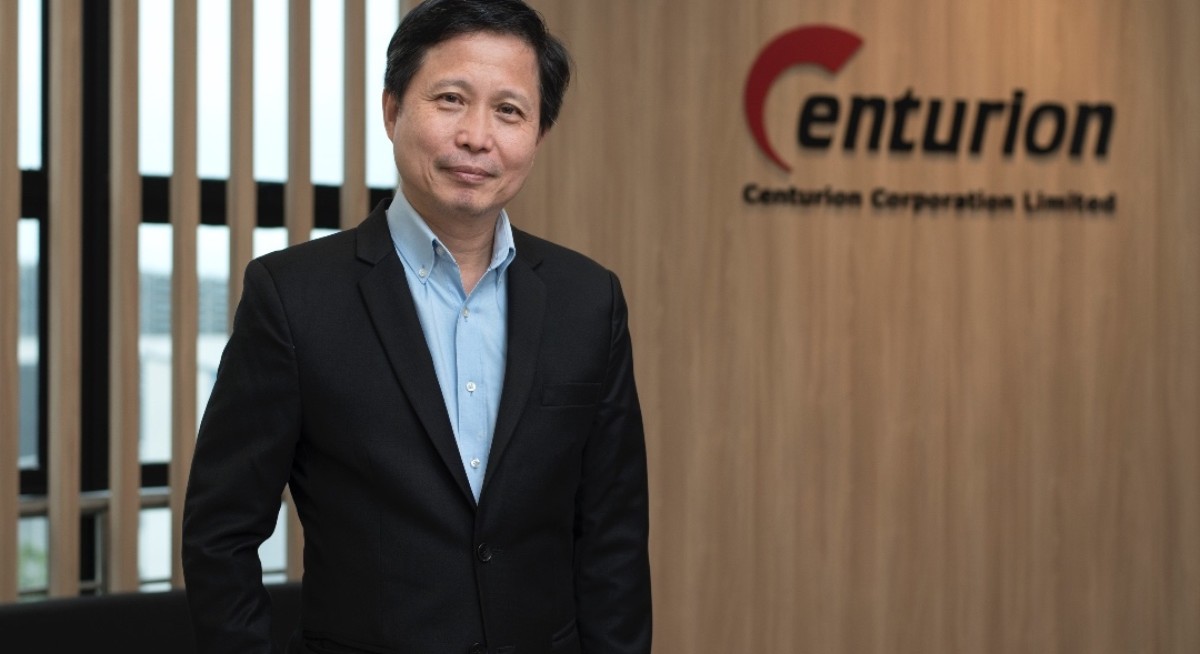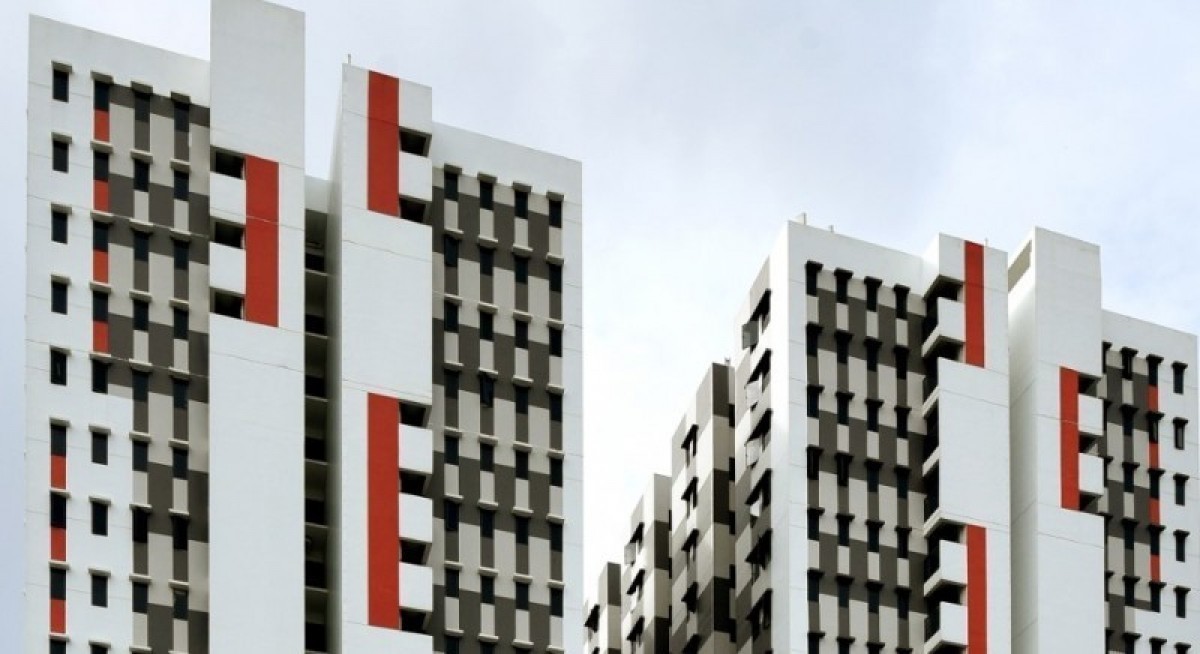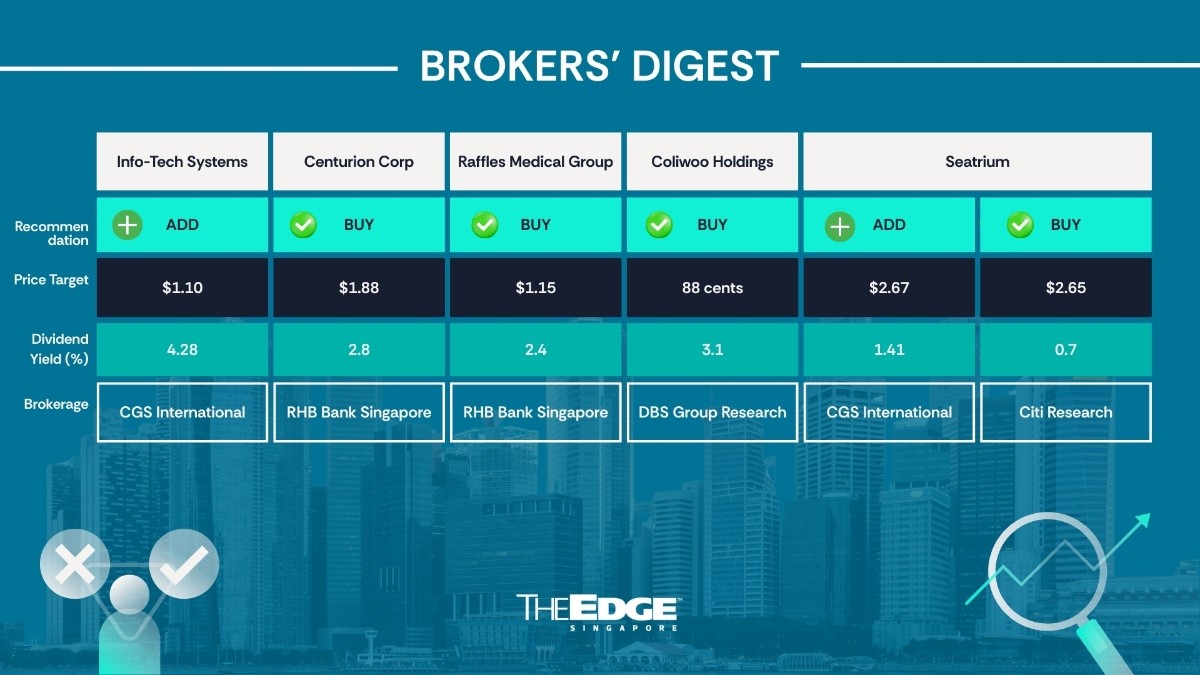See also: A market worth your time and participation
Westlite Toh Guan is one of the five PBWA dormitories under Centurion’s portfolio in Singapore, which has approximately 28,000 beds. This number will increase to around 34,400 as the company was recently awarded a tender by JTC Corp to lease and manage up to 6,400 beds in four new foreign workers’ dormitories. This is part of the new Quick Build Dormitories (QBDs) that have been set up to expand the living spaces for foreign workers. Across the causeway, Centurion runs another eight such worker facilities, with a total of approximately 35,700 beds. These include a recent master lease from Perbadanan Kema- juan Negeri Selangor (PKNS), or the Selangor State Development, to manage over 5,000 beds in a PBWA situated in Petaling Jaya. This foray marks Centurion’s entry into the central region of Peninsular Malaysia, beyond Johor and Penang where it already has a presence in. When a ninth dormitory is completed in FY2021, there will be 3,600 more beds added to the PBWA portfolio. At this year’s Centurion Club awards, Centurion has been named the overall winner in the real estate industry sector.
See also: Well-placed to play central role in building sustainable financial future for Asia
To better support residents across its PBWAs in Singapore, Centurion leveraged on MyMA — its proprietary app launched in early 2019. Originally developed to ease and enrich the information and lifestyle needs of Westlite’s foreign worker residents, the app has since been enhanced with features to support needs arising from the Covid-19 situation. The mobile app now allows foreign workers to access the three government apps for monitoring their health, work status and movement records from a single page on MyMA. This helps worker residents and their employers to track and manage the workers’ movements to and from the dormitories, explains Kong. Other features added on MyMA during this time include: recording twice-daily temperature readings, which can then be reviewed by dormitory management and the workers’ employers; checking in and out of the dormitory; remittance services; ordering of groceries from the dormitory’s supermarket; as well as access to movie subscriptions, games and contests to combat cabin fever. Aside from this, Centurion doubled its staff strength to around 60 at each PBWA, to better see to residents’ needs. Staff on the ground include security offices and cleaners, who had to ramp up cleaning of high-touch-point areas. A team was also set up to engage the residents and tide them through this period of low morale. This group helped keep the spirits of the residents high with virtual games. They also organised competitions rewarding the cleanest room and most creative greeting, during festivals like Hari Raya and Deepavali. These efforts are part of Centurion’s mission to provide residents with a home away from home. And to see to this, Kong and his team have no qualms rolling up their sleeves or lending a listening ear. One such instance was when Kong supported a worker’s return home shortly after the “circuit breaker” measures were lifted in Singapore. The resident had resigned from his job and bought a ticket to his country, without realising that he would need to get clearance to travel and undergo a stay- home notice order. “He was so worried and looked like he was about to cry at the thought of not being able to go home,” recalls Kong, who liaised with the resident and the relevant authorities to facilitate his return home. Meanwhile, the company’s unique offerings can also be seen in the design of its PBWAs, which have the same mould as a housing development board (HDB) estate. Residents are housed in units with — depending on the size of the dormitory — a capacity of between eight and 16 beds within an apartment unit. Each unit has its own kitchen, living and dining area, toilets and showers. The dormitories also boast amenities like food courts, minimarts, clinics, barber shops and automated teller machines so that the residents do not have to venture far for their daily needs. Other facilities provided include indoor gyms, reading and game rooms/courts to cater for the physical and mental well-being of the residents. Students’ dwellings
Centurion’s motto of providing more than a home, is also put into practice at the company’s purpose-built students’ accommodation (PBSA) facilities. The company owns a portfolio of around 6,400 beds mainly in the UK and US, but also in Australia, South Korea and Singapore.
SEE: Dorm operator Centurion Corp gets a thumbs up from UOB Kay Hian
Since then, like for many other businesses, the company’s financial results have been affected by the slowing economy. In its business update for 3QFY2020 ended Sept 30, Centurion reported revenue of $29.4 million, down 11% y-o-y. A substantial drag came from the lower occupancy levels at its PBSA properties in the UK. Overall, the segment’s revenue came in at $6.2 million, down 39% from the $10.2 million logged in 3QFY2019. A further depression in the company’s PBSA revenue was mitigated by the stable performance of its PBWA portfolio, which recorded a 1% growth in income to $22.8 million, from $22.6 million in the previous year. The company also enjoyed revenue contributions from a newly added management service contract from JTC Corp in Singapore, as well as its dwell Archer House PBSA in the UK which
commenced operations in 4QFY2019. Even with the near-term impact on revenue, there are still analysts who like this stock. UOB Kay Hian analyst Nicola Ho notes that Centurion has a “business model which provides good earnings visibility, with contracts typically being 12 months long and with rent payments collected in advance”. This reduces the risk of non-collection, she explains. Occupancy levels across Centurion’s PBWAs — particularly in Singapore — are slated to remain healthy, as sectors such as construction and oil and gas which are less reliant on migrant workers are less susceptible to a Covid-19-induced recession, reckons Ho. As for its PBSAs, she notes that only a “small number”, such as one property in Melbourne, Australia, and a few in Manchester in the UK, have been affected by a new wave of Covid-19 infections. “These properties account for less than 4% of Centurion’s total capacity by bed count, and the occupancy dips are also expected to be temporary and should re- cover as soon as local movement restrictions are relaxed,” adds Ho. Centurion appears to have a sustainable business model that is seemingly resilient against the Covid-19 health-cum-economic crisis. This should provide comfort to Kong and Centurion’s stakeholders, just as the company looks to do in its service to residents at its PBWAs and PBSAs.










 (1)_0.jpg)